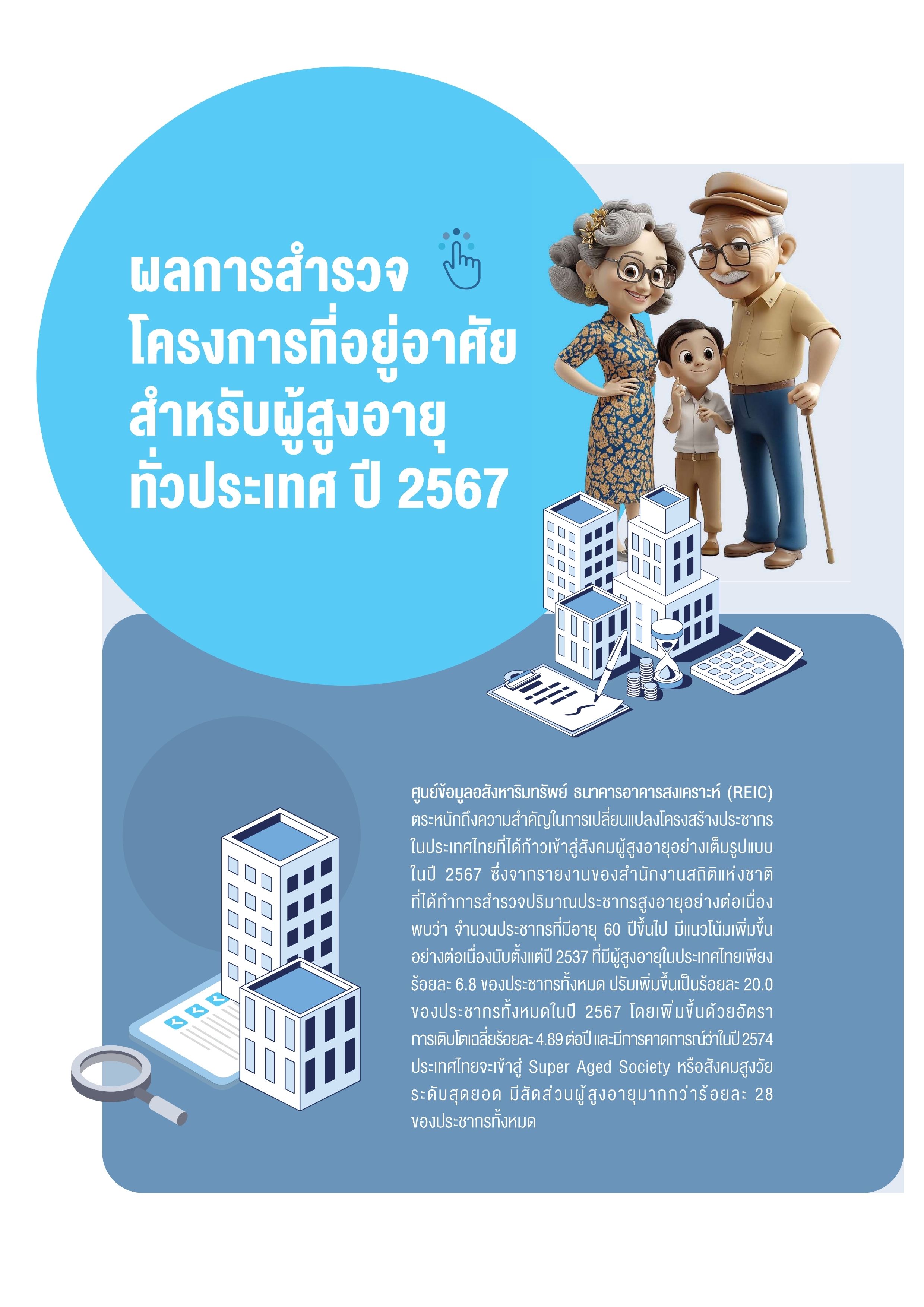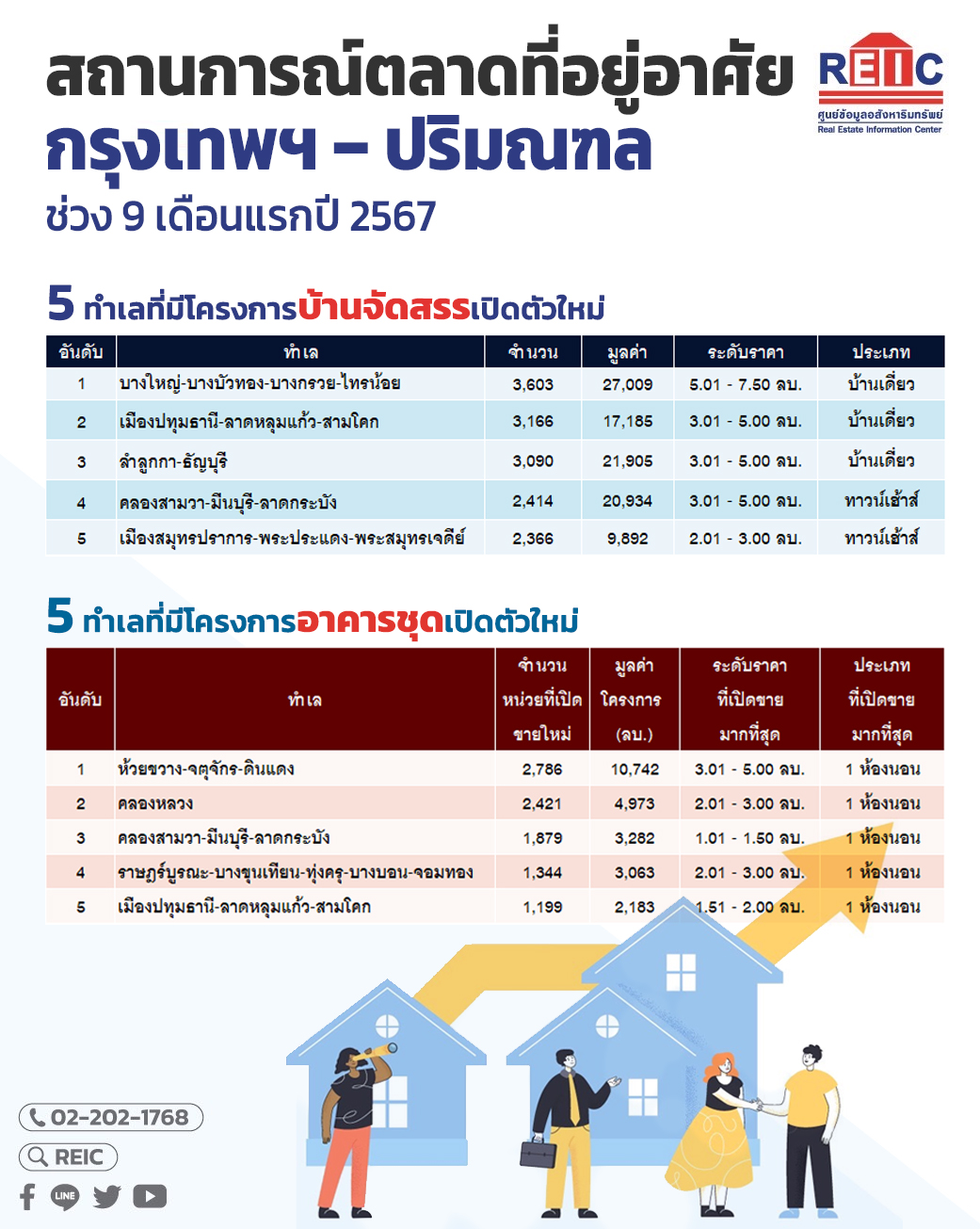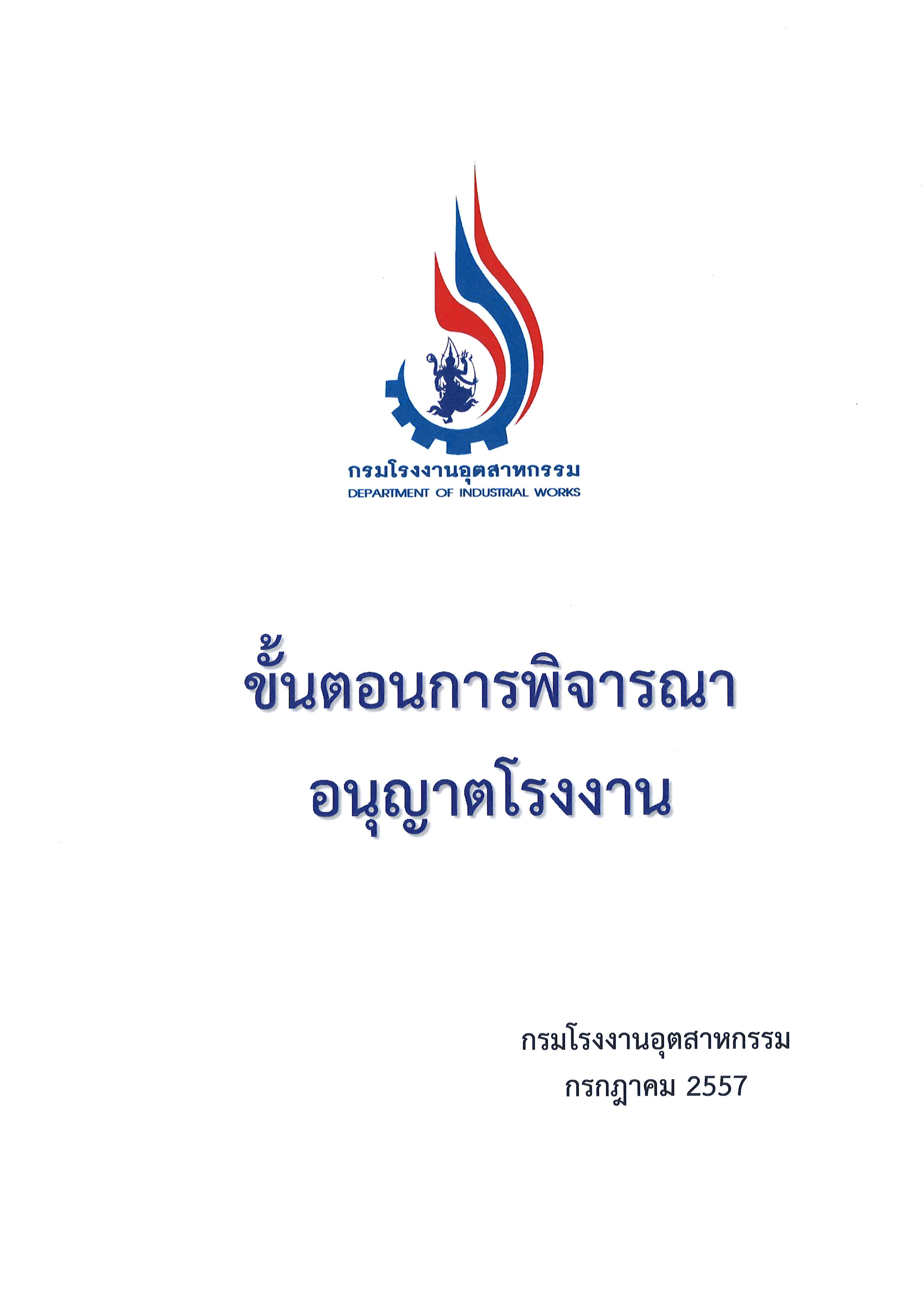
03/02/2568
Picture and detail credit from : REIC Real Estate Information Center website and REIC page
The National Economic and Social Development Council reports that over the next 20 years, there will be a significant increase in elderly individuals requiring assistance, particularly those who are homebound or bedridden. This group is facing health issues primarily due to chronic non-communicable diseases such as stroke, diabetes, high blood pressure, dementia, and frequent falls. This trend is expected to lead to increased public health care costs.
According to the Department of Health's Health Forecast Group, Ministry of Public Health, the number of dependent elderly is projected to rise dramatically in the next 16 years. By 2040, the number of bedridden elderly men is expected to increase from 81,000 in 2021 to 370,000, and for women, from 18,000 to 211,000. This trend reflects Thailand's transition into a "complete aging society" and preparation to enter an "ultimate aging society", necessitating the development of appropriate housing.
Currently, there are 832 nursing home projects nationwide with a total of 22,273 beds, maintaining an average occupancy rate of 70.9%. The ten provinces with the highest number of beds, popular among both Thai and foreign elderly, hold 17,767 beds, accounting for 79.8% of the national total. Bangkok has the highest number of available beds, totaling 8,986, which is 40.3% of the total across the country, with an occupancy rate of 69.2%. However, Chonburi province, ranking sixth in the number of beds with 963 units, has the highest occupancy rate at 76.9%.
For more information, please visit: www.reic.or.th
The survey of housing projects for the elderly in Thailand highlights current developments in elderly housing, emphasizing the need to consider the varied incomes and needs of the elderly and their caregivers in each area. Effective financial mechanisms are essential to support the development of these projects, ensuring comprehensive and accessible elderly housing nationwide. This includes options like long-term lease agreements or rights to occupy, tailored to fit the economic status of the elderly, to avoid future burdens on their families.

The real estate market in Bangkok and greated Bangkok during 9 months of 2024
Read more
Financial Education Training in-house
Read more
The housing market situation in the EEC in the third quarter of 2024
Read more
Results of the National Survey on Housing Projects for the Elderly, 2024
Read more
Factory Licensing Consideration Process
Read more